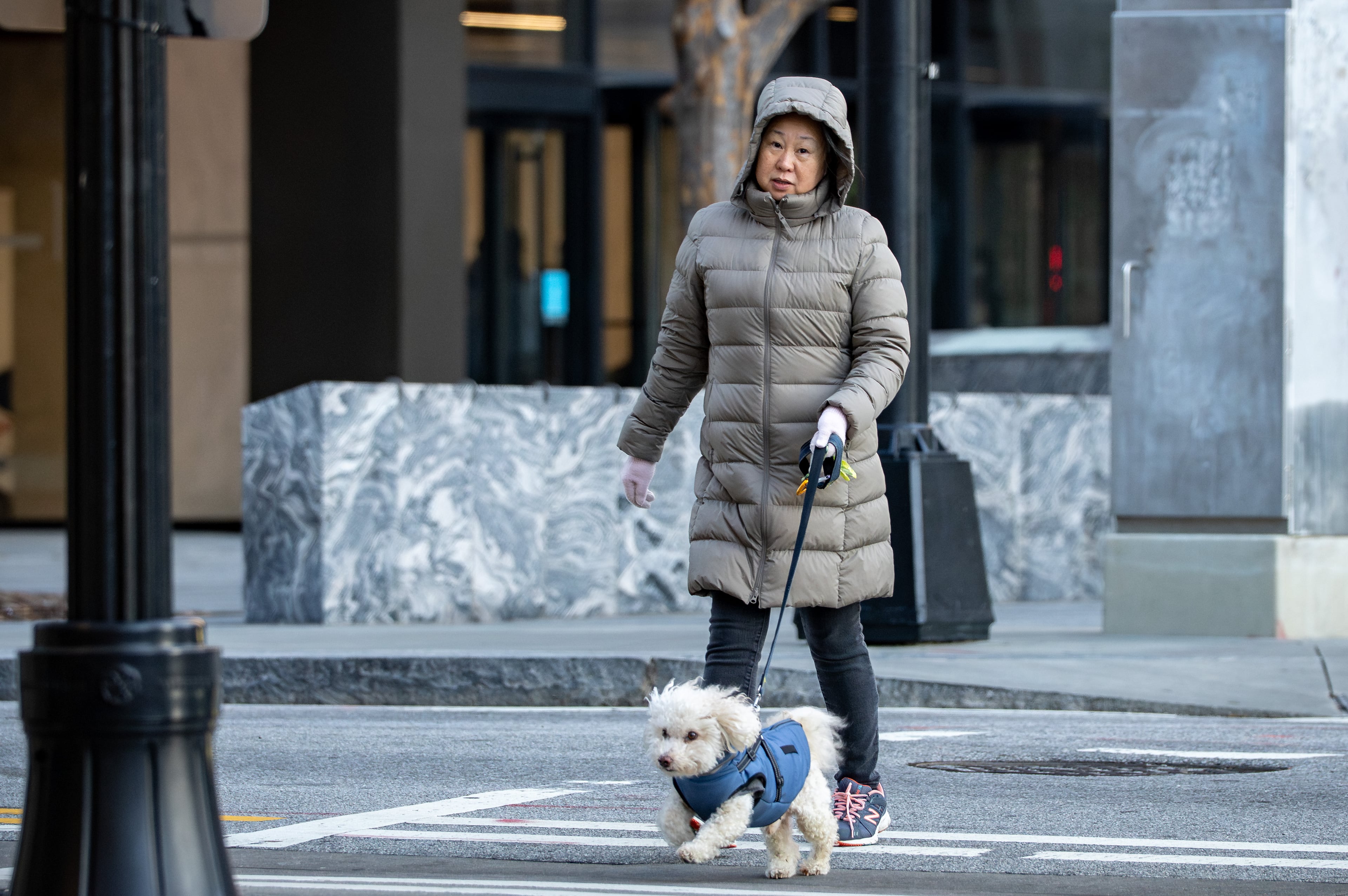A tornado hurled a Georgia teen from his house. His dad is documenting their recovery, Hollywood-style.

The turquoise kitchen island was the only thing left standing to greet 19-year-old Malachi Chaney and the gaggle of television cameras his father invited to their post-tornado homecoming.
Malachi had been hurled some 300 feet by the EF-2 twister that ripped through Henry County on May 29. He and his father, actor Tray Chaney, were the victims of the strongest tornado to date this year and the only one to cause injuries.
Now, weeks after Malachi’s miraculous recovery from the traumatic brain injury he sustained in the storm, the Chaneys are eager to tell their story. Tray, an actor best known for his role in the HBO show “The Wire,“ has rolled out a literal red carpet for news reporters and friends to survey the wreckage.
“It’s like seeing the whole bat cave destroyed,” Malachi said, plucking at a theme about superheroes he would return to as he told his tale.

The tornado that swept through their street in Locust Grove was the strongest of Georgia’s at least 36 tornadoes to date this year. Theirs was the only house on their street to be leveled to the ground by the tornado.
Malachi had sustained broken ribs, cervical fractures, facial fractures and a traumatic brain injury. But he survived. And every part of that journey has been documented online through social media updates from his father, giving it a Hollywood flair.
Malachi’s old mattress now sits half buried in ongoing construction, a marker for just how far the tornado threw him. He says he doesn’t remember any of it — not the week of May 29, not the tornado and not the two weeks after. When he woke up, his last memory was laughing with his friends at Whataburger.
A few traces of his old life from weeks ago remain at the destroyed house — a yellow highlighter sticks out of the grass, a few plastic bottles of water lie nearby. He was working at Home Depot and had just finished his freshman year at Savannah State University. Now, he’s hoping he will be able to go back.
“I’m just grateful to God I’m still here,” he said. “I’m grateful to God I’m talking to you.”
A photographer hired by the family follows him as he walks, snapping photos of his reaction. A drone brought by his uncle flies overhead, documenting every move.

A superhero fan, Malachi compares waking up in the hospital to Captain America waking up out of the ice. The comic book story has that hero being buried in ice saving the world in 1945, not emerging again until 70 years later.
“The next thing I know, in two weeks, the world changed,” Malachi said.
His friends, who visited him in the hospital and are there to greet him when he pulls up to his house, joke about other comic book heroes, saying that Malachi has a mutant healing gene like Deadpool or Wolverine.
Maybe he’s not far from it, either. His survival and fast recovery, his doctors say, are incredible.
“For him to be thrown with what I imagine was an extreme force from tornado winds to in a short time being able to be independent and go out physically and walk and talk and eat is nothing short of a miracle,” Abana Azariah, who treated Chaney at Shepherd Center, told The Atlanta Journal-Constitution. “I’m excited to see where he ends up. I think he’s going to be a great inspiration for a lot of other young patients.”
Now, he’s in outpatient therapy to work on the skills he’ll need to return to school, like executive function and higher-level problem solving.
“With a brain injury, it’s a lifelong injury, but it’s not going to define who he is,” said Carla Auerbach, his speech language pathologist. “I think the outlook for his progress and his well-being is very positive.”
Chaney and his parents say he has changed since the accident. He used to be an introvert, they said, but now, he’s outgoing and chatty — a personality change his doctors say is not uncommon after traumatic brain injury. He speaks confidently with the press, easily navigating interview questions and a constant swirl of microphones and cameras.
The family is currently living in a temporary apartment next to Shepherd Center. They don’t plan to rebuild the house or return to the neighborhood, they said, though they would like to be back in Henry County.
“To see him now being able to talk and walk and eat by himself is a blessing from God,” Tray Chaney said. “As a family, we are healing together. We are 100% behind Malachi’s journey.”

Tray wears a black T-shirt when he comes back to the house Wednesday, bright green prayer hands with his son’s name emblazoned on the back. When Tray woke up after the tornado, he said, he was buried under the roof of the house. His first thought was his son.
When Chaney comes back to the neighborhood, his neighbors — Curtis Bryant, Nick Peebles and Kelvin Lindsey — come out to greet him. The day of the tornado, they ran across the street to help Tray out of the rubble and then searched for his son.
Bryant, who found Malachi, remembers just one thought running through his mind as he rushed over to where the boy lay unconscious in the dirt: Please don’t be dead. Once he and another neighbor saw that Malachi was still breathing, they started talking to him immediately.

“[We were] letting him know that we here, saying, ‘Everything gonna be all right, you’re going to be OK, and you’re going to have a story to tell,’” Bryant said.
Now, just weeks after the tornado, Malachi walks across the street to greet them. He might not have heard their voices in the aftermath of the tornado, but Bryant tells him again anyway, smiling when he sees the boy.
“You’ve got a story to tell,” he said, pulling Malachi into a hug.


